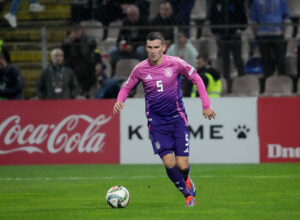FIFA President Gianni Infantino has had his plans to expand the World Cup from 2026 onwards approved. This will mean major changes to the structuring of the competition. There will be 16 groups with 3 teams in each, where the top two in each group will advance to the Round of 32. These new plans have split opinion in the footballing world.
Benefits for smaller nations
Playing in the World Cup should be a privilege, and for many countries which haven’t experienced it, this is definitely the case. Expanding the competition will mean nations in Africa and Asia in particular may get a new opportunity to participate at this prestigious competition. These two continents may gain at least four new places each, and the chance for extra nations to compete against the world’s best will help them improve, as happened with Argentina in the world of rugby.
From this perspective, it can be seen as a great opportunity for many of the smaller nations in under-represented continents, who may have never been to such a prestigious competition like the World Cup.
Quality of football
With this added opportunity comes some concerns. The World Cup has produced some thrilling encounters over its 87 year history. It’s a chance for fans across the globe to watch the heavyweights go head to head and put on major sporting spectacles. The addition of 16 more teams will be of concern for many in consequence, as there’s a likelihood that the quality of football and entertainment on display could decrease significantly, particularly in the early rounds.
Euro 2016 may have been one massive party to remember for many participants and their supporters, but it’s also true that the expansion of this competition may have been directly linked to it being one of the lowest-scoring competitions in decades. Whether this will have a similar effect from 2026 onwards is yet to be seen.
Effects on the players
Infantino has vowed that countries will play no more than seven games each, but with the plans still in their early stages there are still a lot of questions to be asked.
From a Premier League perspective in particular, the lack of rest that many players who go deep with their nations in international competition get is still an issue. The fact that the English top flight has such a congested festive period without a winter break along with such tight fixtures will only increase the concerns that have fuelled opposition to these changes.
Arsenal, for example, were one of the clubs who suffered at the beginning of the season without the likes of Mesut Özil, Olivier Giroud and Laurent Koscielny after the Euros. The Gunners picking up one point from their first two games of the season may have been as a result of this.
With the changes taking place to the World Cup, there are still questions to be answered as to how fixtures will be structured, how long the tournament will be, and how this will affect the players and their fitness in particular as well as the clubs that they play for.
The Last Word
These plans have only just been announced, with a lot of organisation still to be done. Infantino insists that this wasn’t a financial decision, but the fact that this new setup will generate an estimated £800 million more in revenue has rightly caused questions to be asked. After all, FIFA has had its severe corruption problems under previous president Sepp Blatter.
With the first of these expanded tournaments nine years from now, there will be further debate about how these changes will affect one of the world’s greatest sporting competitions.
Main Photo






